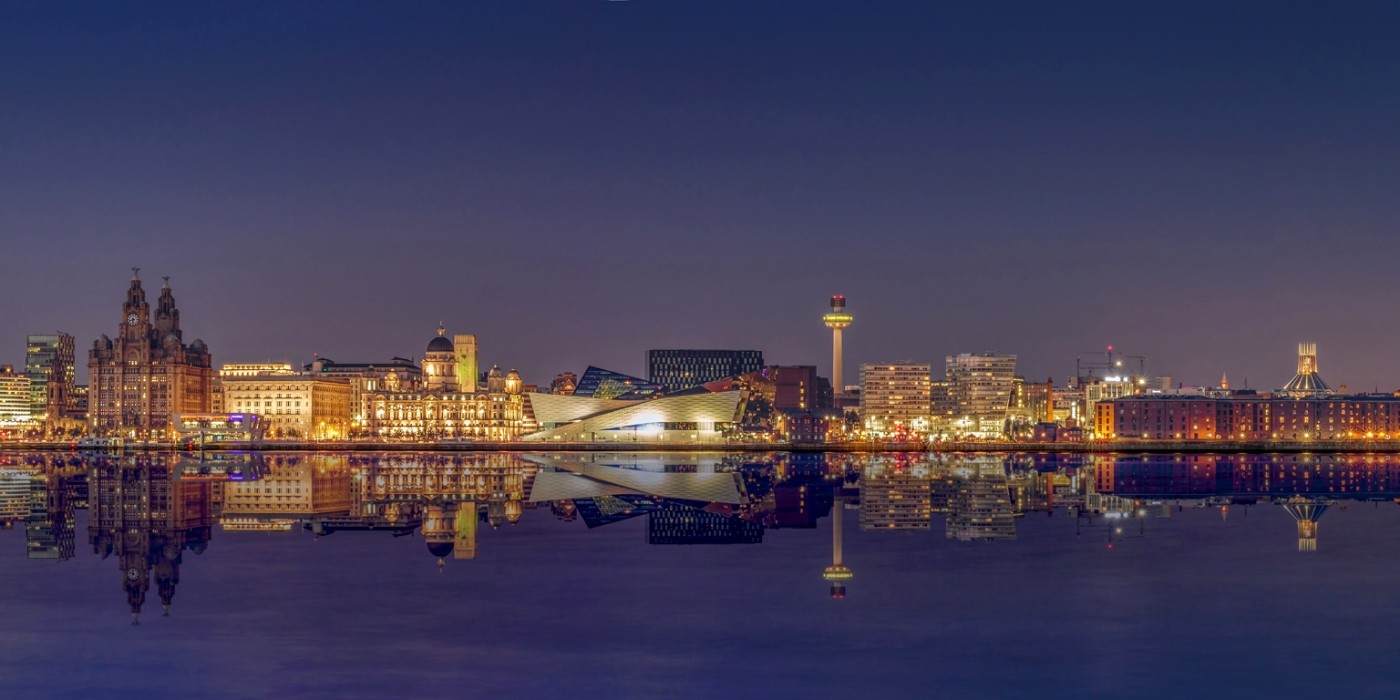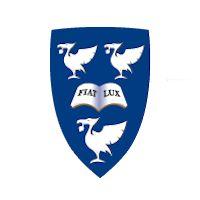Communication and Media PhD
The department prides in its ability to embrace the study of communication and media in an inclusive and comprehensive manner. From political communication to discourse and culture, from heritage industries to media and entertainment, from film and television to social media, the Department of Communication and Media has been providing cutting edge research that links strongly with most key areas of inquiry in this major field of studies.
Research in Department of Communication and Media, University of Liverpool, is conducted within four research clusters which share common interest in critical, interdisciplinary analysis of a variety of modes of mediated communication across social spaces and fields.
The Culture, Space and Memory research group brings together ideas and intellectual orientations on the cultures, practices and spatial dispositions that inform transdisciplinary approaches to media and communication in the digital age.
The Discourse & Society research group looks at how language and discourse – in traditional/social media, politics and the wider public domain – act as vehicles of social change as well as carriers of relationships of power and inequality in contemporary societies.
The Media, Politics and Society research cluster deals with critical analysis of media outputs and journalism from the perspectives that highlight political agendas, assess the impacts on marginalised groups, and foster understandings of human rights.
Finally, the Screen & Film Studies research cluster focuses on film and television studies, with the study of digital screens that cut across various media sectors emerging as a third key area of expertise.
We particularly welcome research proposals that match those of our researchers, including:
Media in humanitarian crises; media and human rights; media coverage of migration and free movement across Europe;
Latin American culture and the relationship between politics and aesthetics; contemporary photography;
Rhetoric, policy frameworks and methodologies that capture the impact and legacy of large-scale urban interventions and events
Broadcasting history, institutions and their programming; film and television documentary, television current affairs programming
Science fiction, fantasy and 'cult' TV and film; PR and promotional cultures with a particular interest in social media;
Gender, political communication and news media and the ways in which they intersect
The moral function of communication; conceptions of home, identity and belonging in communicative capitalism
Critical discourse studies of populist political communication; the intersection of politics and the media as key carriers of public imaginaries of social reality
Experimental, oppositional, marginal and other alternative filmmaking histories and practices; the work of Andy Warhol and other artist-filmmakers
Argumentation Theory, Rhetoric and Discourse Analysis, with emphasis on in the study of argumentation in strategic communication contexts
Media discourse (especially approaches from a (socio) linguistic perspective) and the uses of dialogue in TV drama
Media and the city; urban cultural studies; visual culture, space and place; cultural mapping and spatial humanities; popular culture, heritage and cultural memory
International and global journalism; young people as media audiences; the Internet’s role in relation to online risks and to enabling democratic deliberations
Political communication during election campaigns, particularly online; social media and their use by voters to communicate politically;
Stardom/celebrity, Hollywood and transnational cinema, screen performance, cult media, and digital media/Virtual Reality
The production of news, documentary and factual content within public service and commercial broadcasting, and within community and citizen journalism.
Media discourses and representations in relation to gender and sexuality; the role of media in identity and community
American independent cinema; Hollywood and global entertainment; cinema and youth cultures; the B Film, exploitation and creativity; Hollywood and Greek cinema
The social, political and cultural impacts of digital media; digital media and interpersonal interaction; digital inclusion/exclusion; digital research in the social sciences.
Intakes
- Sep
Application Processing Time in Days: 40
Minimum English Language Requirements
| English Level Description | IELTS (1.0 -9.0) | TOEFL IBT (0-120) | TOEFL CBT (0-300) | PTE (10-90) | |
|---|---|---|---|---|---|
| Expert | 9 | 120 | 297-300 | 86-90 | |
| Very Good | 8.5 | 115-119 | 280-293 | 83-86 | |
| Very Good | 8 | 110-114 | 270-280 | 79-83 | |
| Good | 7.5 | 102-109 | 253-267 | 73-79 | |
| Good | 7 | 94-101 | 240-253 | 65-73 | |
| Competent | 6.5 | 79-93 | 213-233 | 58-65 | |
| Competent | 6 | 60-78 | 170-210 | 50-58 | |
| Modest | 5.5 | 46-59 | 133-210 | 43-50 | |
| Modest | 5 | 35-45 | 107-133 | 36-43 | |
| Limited | 4 | 32-34 | 97-103 | 30-36 | |
| Extremely Limited | < 4 | < 31 | < 93 | < 30 |
Job Opportunity Potential
Open to graduates from any discipline, our Master of International Business (MSc) course is a specialist award for career entry or career development that will prepare you to successfully integrate with businesses operating an international platform.
The purpose of this degree is to allow you to hone your professional, analytical and personal capabilities in order to develop a global perspective for business. This will be accomplished by developing the agile, curious, resilient and innovative mindsets that are necessary to cope with the levels of uncertainty, complexity, ambiguity and risk that are so evident in a rapidly changing world.
At every juncture, you will be encouraged to consider how you can add value to business processes while being mindful of the ethical, social and cultural responsibilities and challenges facing all organisations.
Enhance your employability
Being employable is about attitudes and skills, confidence and drive – it means being able to choose a career, apply effectively and be successful. As the world of work changes and organisations evolve, employers are increasingly searching for graduates not just with a degree but with the right blend of skills, knowledge and experience – graduates who can make a difference in any situation. That’s why at Liverpool we are focused on developing your employability while you are studying in preparation for life after graduation.
Services and resources
The University of Liverpool Careers & Employability Service supports students and graduates across all disciplines. Each academic department has a dedicated careers adviser, and as a student, you can access our up-to-date resources in person via our Careers Resource Centre or on our website.
Resources and services available to you include:
A comprehensive programme of careers related seminars, workshops, fairs and recruitment events
Support in finding work placements and internships in the UK and overseas
Access to a wide range of job opportunities
Opportunities to meet organisations keen to recruit Liverpool students and graduates
Support from our team of professional careers advisers.
Not that we’re complacent, we are constantly looking to improve our services and develop our expertise to support students.
Wanted: work experience
A good degree from the University of Liverpool will open a lot of doors, but these days employers are interested in graduates who can demonstrate more than just an outstanding academic record. We can help you find opportunities specifically designed for university students.
These include:
Part-time jobs
Paid Summer and Easter internships
Year in industry placements.
Talent Sourcing: Graduate Recruitment
As a member of the Russell Group, studying at Liverpool gives you direct access to an extensive range of recruiters operating in all sectors of the economy, and in companies ranging from SMEs (Small and Medium Enterprises) to international corporations.
Employers value our solid academic reputation and want to meet our students. At Liverpool we have a dedicated Employer Engagement Team who promote Liverpool students and graduates directly to some of the world’s leading recruiters.
Last year, around 300 employers visited campus to recruit Liverpool students, and we advertised thousands of placement, internship and graduate vacancies on the Careers & Employability Service website.
Careers & Employability Service
As one of the UK’s leading careers services we offer high-quality employability support during and after your time studying with us, blending advice, guidance and training.
Through a range of career management inputs, personal and professional development and access to industry experts and speakers, our aim is to match your needs and ambitions as they develop.
We can help you with:
Career planning
Understanding the job market
Making effective applications through CVs, letters and application forms
Preparing for and attending job interviews
Performing effectively at Assessment Centres
Strengthening your networking skills, including digital networking Industry networking opportunities.
As well as face-to-face guidance and on-site sessions we also offer online support, webinars and guidance. All our activities are supported by a state-of-the-art interactive website, CareerHub.
You will also benefit from our close links with industry. All our career and employability development activities are designed with considerable input from employers, and we hold key networking events throughout the year. In recent years our Careers & Employability Service has won several prestigious national awards including the AGCAS International Award for demonstrating an outstanding commitment and contribution to working with students, relevant employers and promoting internationalisation.
PSW Opportunity
- 2 Years PSW is applicable after completing a minimum duration of 9 months course (like- Undergraduate, Postgraduate Level)
- 3 Years PSW is applicable after completing PhD level courses.
Admission Requirement / Eligibility Criteria
- Course Type: Full Time
- Course Level: Doctoral Degree/PhD
- Duration: 04 Year
-
Total Tuition Fee:
97000 GBP
Average Cost of Living: 13632 GBP /year
Application Fee: N/A

